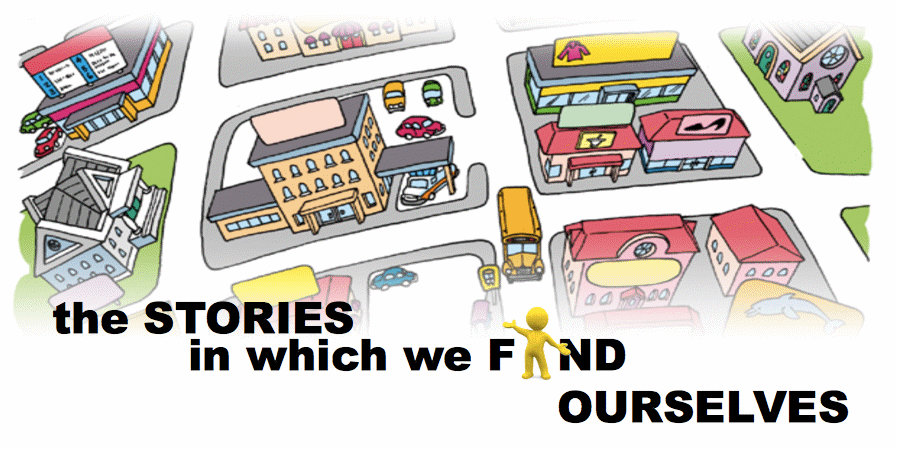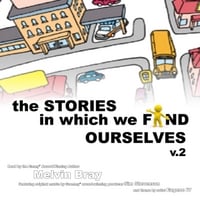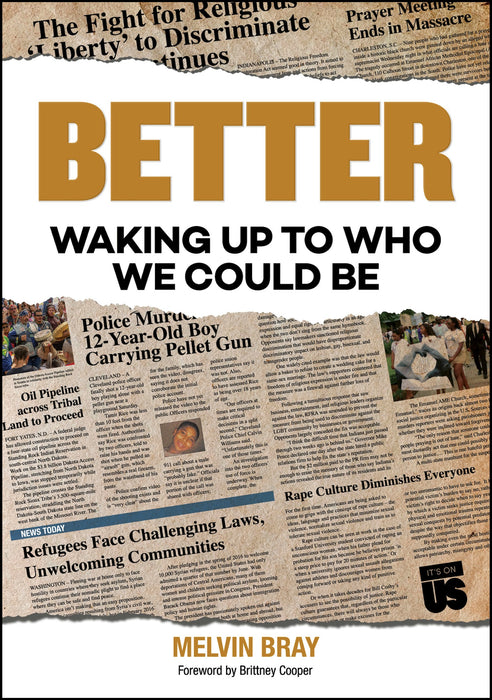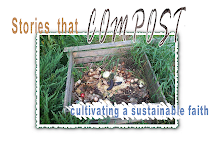Occupy Bethlehem: A Nativity Story
I
"Move on you good-for-nothings! You cannot occupy this space. This is the marketplace, the seat of commerce. Just because ninety-nine percent of you are lazy and don't want to work, don't blame those of us who do for your woes," the merchant blustered. "Now get out of my way! So I can make the most of all these extra people in Bethlehem today."
"How dare you talk to us that way. POOR LIVES MATTER!" a beleaguered man shot back. "We would gladly work. No one wants to live like this."
"Good for him," I thought to myself and turned my attention back to the man and woman I had been studying before the momentary distraction of the merchant's callous commentary. Such clashes weren't uncommon nowadays.
I had watched this particular couple get turned away by at least three innkeepers whose homes skirted the market square, before the two of them began to note the tenor of what was happening in the marketplace around them. Whether they had money for a room or not didn't matter, the answer was the same, "No room." Had they been wealthy enough to offer the innkeeper more than a guest already inside, perhaps things would have been different. But as it was, all merchants in the city were holding out for the highest bidders.
Caesar Augustus' decree that everyone under Roman rule return to their hometown to be counted and taxed had turned the world as we knew it upside-down. The wealthiest who could pay someone to handle taxes for them and the few others who hadn't had to venture too far from their place of birth to find work were fortunate enough to be able to stay put and capitalize on the opportunity created by the upheaval. But the vast majority were with the stroke of a pen forcibly dislocated.
I don't know why this new couple caught my eye. They were one of so many. Clearly they hadn't been here long. It only took a few rejections to realize the labor class could no longer afford housing on the market square. They would have to take their search further out.
I noticed the tools slung over the back of the animal the woman was riding. Within about a week they would find that the ability to do skilled labor mattered less now too. Having skill didn't guarantee one a place in this economy. My father is a boatbuilder who had run a busy boatyard back home. However, with so many people crowding into Bethlehem, carpenters, cobblers, blacksmiths and other artisans were a dime a dozen, which left many without work and without prospects.
Maybe the couple had caught my attention because the woman was pregnant, and I wanted to be a doula someday.
Looking around, hearing the merchants speak to the peasant farmers and laborers reduced to begging and stealing for their daily bread, perhaps it was sinking in that their return to Bethlehem might prove more difficult than they had initially thought. The man negotiated a price for something to eat. Though I couldn't hear it, he must have also asked about a place to stay, because they began to make their way out of the marketplace. I followed surreptitiously. Staying hidden wasn't hard. There were so many people. I snagged a handful of figs on our way out the square. I hadn't eaten all day. The callous merchant didn't notice me; he was too busy swindling someone else.
The couple made their way a good distance from the city center before beginning to inquire again for a place to stay. The answer remained the same. The sun was beginning to set. I could see the man getting anxious. I watched him move more rapidly now.
It didn't help. While in the midst of yet another attempt at an unsuccessful plea, the man's wife groaned in pain. Cutting his pitch short, he gave up mid-sentence and ran to be at
her side.
"It's almost time," she murmured weakly.
I felt like Mariam, Moses' sister. I had a secret that could better their situation, but my father and mother had been quite emphatic regarding the need to keep our circumstances confidential. I wanted to do something to help, but I didn't want to endanger the well-being of our family or those who had taken us in.
 |
| Black Madonna | katherineskaggs.com |
"Sir," I said running up to him, "I know someone who can help, but we have to go back through the market."
"That may be too far," he gasped looking at me suspiciously. He looked at his wife for some indication of what she could manage.
"The baby won't likely be born for a while yet, sir," I replied. "Meanwhile, believe it or not, walking might make things progress better."
The woman nodded her agreement, and her husband gave her a strong arm to lean on. I led them back through the marketplace which was by this time nearly deserted. On the other side, we turned left down a particular street on which some of the most wealthy lived. I asked the woman to be as quiet as she possibly could as we made our way in the shadows.
"Where are you taking us?" the man asked unsure now about pinning his hopes on a street urchin.
"I'm taking you to my mother," came my whispered response. "She is a midwife and will be able to help you."
The young woman bravely swallowed every contraction that came. My own belly ached for every grunt she made. I could see now she wasn't much older than I, maybe two or three years. We moved as quietly as possible. I came to a halt in the shadow of a large Sycamore and listened. I then made the call of the Nightjar three times. After a count of ten, an identical call greeted me.
"I'll return as soon as I can," I said creeping off in the direction of the response, "Please stay here where it is safe."
"Safe?" the man questioned in exasperated undertones. "You can't just leave us. My wife—" But I was gone.
II
I made it back as quickly as I could. I first went to notify Ifa and Reuben, who had responded to my call, that I was bringing newcomers. As the guards on duty that night, I didn't want them to be alarmed. Then I went to alert my mother and father to what I had done.
"What have we said about the need to be so very careful?" my father questioned me. "If the wrong people were to ever find us out, everyone in the network would be in jeopardy."
But my mother understood and patted my father on the arm, diverting his justified concern toward the things she would need to help the couple's child come into the world. That's when I went back to them.
"I'm so sorry I was gone so long. Follow me."
I led the couple pass where Reuben and Ifa sat in the bushes keeping watch on the road. When we got to the stable, my mother greeted the woman, taking her hand away from her husband, and leading her to a freshly hayed stall nearest to the fire. Naomi and Abigail, Reuben and Ifa's wives, came close to ask how they could help, while my father helped the woman's husband unload and feed their animal. It was then I learned their story.
The man's name was Joseph, his wife, Mary. They had lingered for as long as they dared, after Augustus' decree, so Joseph could finish out some jobs he was working on. He was a carpenter. They had come to Bethlehem from Nazareth by way of Jerusalem, where they had tried to stop earlier in the day, but they couldn't find a place. They had debated camping along the way, but Joseph hadn't liked the idea of being out alone with Mary in her condition. He had brought his tools with him, hoping to find work while here in Bethlehem and create a comfortable home for him and Mary over the next few weeks waiting for the child to be born and for at least the first six months after.
Our story wasn't dissimilar, Father told Joseph. We had come a month sooner from Capernaum, on the Sea of Galilee. Whereas Father hadn't planned on boat-making while in Bethlehem (so far from the water), he thought for sure he'd be able to find work as a craftsman somewhere. Not knowing how long the census would take, he had planned to stay put for six months to a year. But by time we got here, there were no jobs to be had. Though frugal by nature, father soon ran out of money. Still, we had to stay until the count was ended, and even then, father wasn't sure we'd have means enough to leave.
We didn't know what to do and had already missed a day of food when one of the women mom had met at the market, Naomi, told us to meet her on the west side of the market at sundown. Under the cover of darkness, she brought us to this stable and told us about the network of squatters who, with nowhere else to go, had occupied the folds and margins of Bethlehem. An "underground vineyard" they call it. They live in the overlook spaces owned by those with more than enough—large stables and wine presses, empty storehouses and in the wild groves of large orchards, wherever they can find a place to lay their heads. They are aided by other working class persons—stable managers, like Ifa—who despised the inequity that created such injustice and understood how easily it could turn on them.
"They simply recognize that playing by the rules of the rich only benefits the rich, no one else," father explained to Joseph. "Ifa grew up on these lands, like his fathers before him, and after all this time, he still only has a room attached to a stable to call home. No returning of the land back to his family as Torah teaches, no Jubilee.
"Whereas individually—whether working for pay or not—there is seldom enough, we are discovering that together we are able to make things work. We "glean" from the wealthy, as Torah teaches the poor to do, albeit without the wealthy's permission. I used to call this "stealing," when I remained unacquainted with the struggles of the poor, back in Capernaum. I'm ashamed that I once thought of people like ourselves as lazy and greedy. But 'Thou shalt not steal' is a command given to a people also commanded to maintain enough for all—the rich, the poor, the priest, the orphan, even the alien and the stranger.
Father continued, "We never take more than enough to make it, and we always look for ways to replace or compensate for what we use. We aren't doing this to get wealthy at the expense of another, only to survive until we can do better for the entire community. So we take refuge in a rich man's barn under the cover of darkness, and help Ifa care for the animals while we look for paid work during the day."
Come to find out, Joseph and Mary were only recently married. Anyone could see Joseph wasn't quite comfortable with the implications of that. Perhaps he didn't mean to tell us. He fixed his mouth as if to say more about the matter, but gave up.
Joseph had other children, so he had been through this before. But there had been certain "peculiarities" with this pregnancy, and this being Mary's first child, he was particularly concerned for her. At this point in the conversation, I heard Mary gasping in pain, and I turned my attention to her and Mother.
III
I don't know if I'll ever get used to the amount of blood involved in birthing a baby. It's one thing when one of the animals does it, but when the baby is of a woman, I am reminded of how creaturely people really are. "Of the same dust," Mother often says. There is nothing polite and neat and clean and spiritual about it. Birth is always messy and earthy and deeply physical.
We all sat around smiling and cooing at the new baby boy. Mary had been a loud one. Naomi had to cover her mouth, and eventually just gave her the rag to bite on. "Labor is never easy," Mother also says, "But some labor is more difficult than others. Still, once they are holding their babies, mothers begin to forget almost immediately all the work it took to bring them into the world."
That may be true of everyone involved, because now we were all grinning at nothing in particular. Even the animals seemed happy. Mother had told us to give Mary room to rest so everyone but Joseph left the stall she was in and started piddling about with nothing in particular to accomplish.
The tranquility of the moment was broken with a yelp and a howl. Fear gripped my insides. That call was the signal that someone uninvited was headed our way. Immediately my dad ran over to the fire pit and doused it with the bucket of water we always kept there. The instant blackness made it impossible to see. I crept in the direction of what i thought was the back wall and some hay, stumbling over this and that as I went. I had been told that, if ever this were to happen, I should find some hay and hide in it.
Joseph, who had been lying with Mary and the baby, roused abruptly and wanted to question what was happening, but Father shushed him so loudly it startled the baby, and he cried out. Mary tried to suckle him, but it wasn't before he had made enough noise to be clearly recognizable to anyone close-by.
We heard foot steps running and getting closer. We didn't know if they belonged to Ifa and Reuben or someone else, and we didn't dare inquire. I, who had yet to find the back wall, stopped dead in my tracks and crouched down as low as I could.
Then we heard voices. "I know I heard a baby's cry come from this direction, and this stable would have plenty mangers about. Let's light a torch. They're probably hid—"
Suddenly there was the sound of struggle. My eyes having adjusted to the darkness, I could see the shadow of what I assumed was my dad jump up and run toward our hot coal bin. Eventually a torch was lit, and we all lifted our heads to see that Reuben and Ifa had made their way to us, snuck up on the two men and succeeded in subduing them face-down in the dirt. The men were trying to speak.
"You don't understand," one of them managed to get out, between mouthfuls of dust. "We aren't here to threaten you. We're part of the network. As shepherds, we carry messages back and forth between clusters," the other added. "That's why we knew where to look."
"Look for what?" Reuben interrogated, unconvinced.
"For the baby."
"What baby?" Ifa jerked his man.
"The baby the angels told us about."
"Let them up," Father suggested, holding up the only light for miles. "Let's see their faces."
Mother, Abigail, Naomi and I oozed from the stables to get a better view. The imminent danger had seemingly passed. Reuben and Ifa loosened their grips just enough to let the men make it to their knees.
"As fantastic as it may sound," one of the men began, "Angels appeared to us out in the fields while we watched the sheep. They told us peace had come to earth this night, goodwill to all in the form of a baby. They said we would find the baby lying in a manger, and with there only being four stables located in this cluster, we figured we'd check them all. You are the third we've come to. The others told us to bring news when we found the baby.
"We came running. Sorry if we frightened you. We were looking for your guards to pass clearance when we heard what sounded like a baby's cry, and I guess our excitement got the better of us."
"Angels? You expect us to believe you saw angels tonight?"
"He's telling the truth," came a sober reply from just inside the shadow of the stable. It was Joseph, who walked into the light of the doorway.
"How on earth would you know?" Ifa puzzled.
"Because the same thing happened to me."
IV
Then the rest of the story came out: the fact that Joseph wasn't the father of the baby. Mary and his betrothal had yet to be consummated. Still he would raise this child as his own. The angel who had appeared to him told him that the baby was conceived of Elohim, a gift to the world."
"This is too much," Father said, glancing from face to face, wondering if anyone else found it all as unbelievable as he.
"Why?" Mother asked. "The prophets told of one who would come to right the earth's wrongs. Don't we look for glimpses of that promise in all our children? Is it our destiny only to seek, never to find?"
 |
| Black Madonna and Child | tamaradouglasart.com |
Everyone went inside. Father got the fire going again. Mother asked Reuben and Ifa to bring a manger into Mary's stall. Then she dressed it with some hay, took the baby from Mary and lay the baby in it, while Naomi offered Mary some food. I remembered the figs in my pocket and added them to the meal for the evening....
"What will you call him?"
Joseph and Mary looked at each other, lost in the solemnity of the moment.
"Whatever you call him," Abigail interrupted, "On this night, light makes a liar out of the darkness yet again, if only we have eyes to see."
Check out the SEQUEL: "A DACA Christmas"









